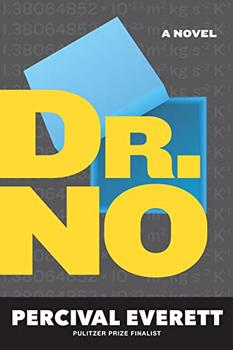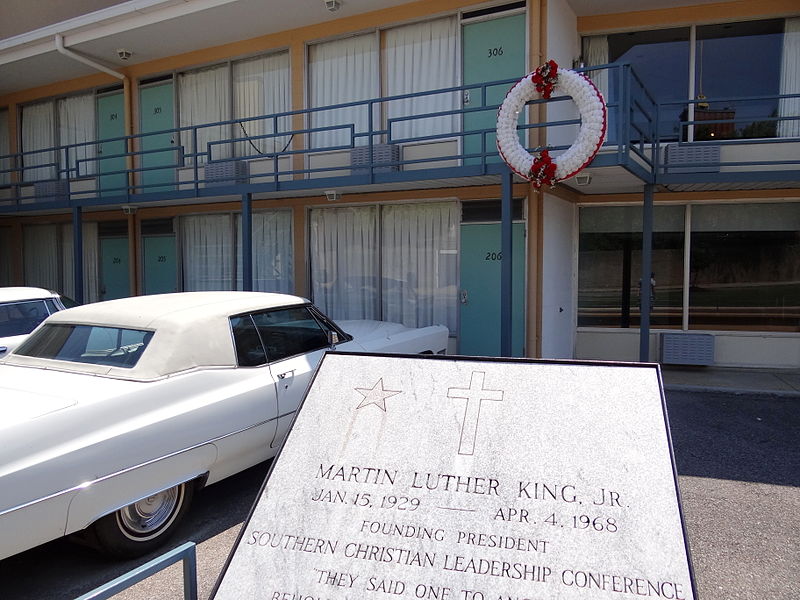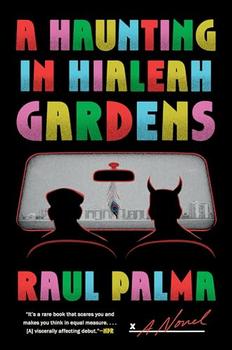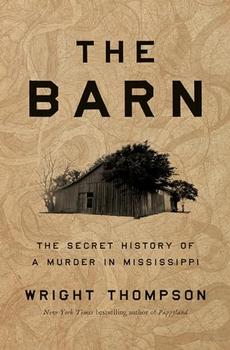Summary | Excerpt | Reviews | Beyond the Book | Read-Alikes | Genres & Themes | Author Bio

A Novel
by Percival EverettThis article relates to Dr. No
 In Percival Everett's novel Dr. No, a character named John Sill vows to become a "Bond villain" after his parents' deaths, which he suspects are connected to the assassination of the civil rights leader Martin Luther King, Jr. When Sill visits James Earl Ray, the man convicted of murdering King, Ray insists that the FBI was behind the assassination, and that the chief of police pulled the trigger—although he does admit to killing Sill's father. In real life, some theorize that Ray was not King's actual killer but a scapegoat for larger forces.
In Percival Everett's novel Dr. No, a character named John Sill vows to become a "Bond villain" after his parents' deaths, which he suspects are connected to the assassination of the civil rights leader Martin Luther King, Jr. When Sill visits James Earl Ray, the man convicted of murdering King, Ray insists that the FBI was behind the assassination, and that the chief of police pulled the trigger—although he does admit to killing Sill's father. In real life, some theorize that Ray was not King's actual killer but a scapegoat for larger forces.
Martin Luther King, Jr. was killed on April 4, 1968. He was standing on the balcony of his motel room in Memphis, Tennessee—where he was visiting to support the sanitation worker strike—when he was shot.
The FBI investigation into the assassination led to James Earl Ray, a white fugitive (he had escaped from prison a year earlier) who was a supporter of segregationist George Wallace. The bullet's trajectory was traced to a rooming house, where Ray had registered. Ray's fingerprints were on a rifle that had fired one shot, as well as a newspaper article with a story mentioning that King was staying in the Lorraine Motel across the street.
Ray was found and arrested a couple of months later. In March of 1969, he pled guilty to murder charges and received a 99-year prison sentence. But within a few days of his confession, Ray began to recant, saying he was set up and framed by a man he knew only as "Raoul." Other sources of doubt about King's assassination, and Ray's ability to do it himself, arose. Some had trouble believing that Ray had arranged his escape following the assassination on his own. Furthermore, as the Washington Post explains, "Ballistics tests could not prove that the rifle…either did or didn't fire the fatal shot, because the gun did not create distinctive grooves on the bullet, as most guns do."
And doubts about the FBI's handling of the case were fueled by their previous activities. The bureau, under J. Edgar Hoover, had surveilled and harassed King, wiretapped his phone and monitored his movements — on the premise that the leader and his influence presented a possible communist threat. They had even sent King an anonymous threatening letter, alleging knowledge of an affair and urging him to kill himself. In Percival Everett's previous novel, The Trees, this letter gets a lightly fictionalized mention—an elderly, racist FBI agent named Hickory Spit is described as having written it.
According to the Washington Post, Coretta Scott King, MLK's wife, was "aware of the FBI campaign, [and] immediately suspected FBI involvement after King's death. But Ray's sudden guilty plea stopped all official investigations." Although there has been no conclusive evidence that the FBI was involved with Ray or behind King's assassination—and the FBI stands behind their conclusion that Ray was the shooter and acted alone—King's family has maintained their belief that Ray was innocent and that the assassination was the result of a conspiracy.
This view has been shared by other Black leaders, including Representative John Lewis (who said, "I think there was a major conspiracy to remove Doctor King from the American scene… I don't know what happened") and Andrew Young, former mayor of Atlanta, who was with King at the Lorraine Motel when he was shot.
"It's still a mystery to me," Bernice King, MLK's daughter, said. "I don't believe James Earl Ray killed my father. It's hard to know exactly who. I'm certainly clear that there has been a conspiracy, from the government down to the mafia … there had to be more than one person involved in all of this. I think it was all planned."
If there is any conclusive information about a conspiracy behind King's assassination, it's not available for most to know. James Earl Ray died in prison in April of 1998.
Exterior of Lorraine Motel with plaque and wreath commemorating assassination of Martin Luther King, Jr.
(National Civil Rights Museum, downtown Memphis, Tennessee)
Photo by Adam Jones, Ph.D. (CC BY-SA 3.0)
Filed under People, Eras & Events
![]() This article relates to Dr. No.
It first ran in the November 16, 2022
issue of BookBrowse Recommends.
This article relates to Dr. No.
It first ran in the November 16, 2022
issue of BookBrowse Recommends.




A library, to modify the famous metaphor of Socrates, should be the delivery room for the birth of ideas--a place ...
Click Here to find out who said this, as well as discovering other famous literary quotes!
Your guide toexceptional books
BookBrowse seeks out and recommends the best in contemporary fiction and nonfiction—books that not only engage and entertain but also deepen our understanding of ourselves and the world around us.